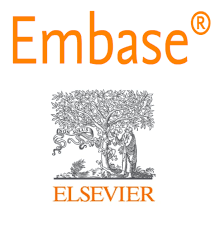STUDY OF CLINICAL OUTCOMES OF INTRA-OPERATIVE ANTI-VEGF AGENT (BEVACIZUMAB) INJECTION GIVEN IN PATIENTS WITH NONPROLIFERATIVE DIABETIC RETINOPATHY DURING PHACOEMULSIFICATION SURGERY
Keywords:
Anti VEGF, Bevacizumab, Best Corrected Visual Acuity, Central Foveal Thickness.Abstract
Introduction: Diabetes is a growing worldwide epidemic that affected 463 Million
individuals globally in 2019 and is projected to reach 700 million individuals by
2045. It has been estimated that 27% of patients with diabetes have evidence of
diabetic retinopathy (DR).It is well established that after cataract surgery, patients
with preexisting diabetic retinopathy (DR) have a significant risk for progression of
DR, diabetic maculopathy, and anterior segment neovascularization.
A considerable proportion, ranging from 3.2% to 55% of individuals with diabetes,
experience PCME after cataract surgery.
Aims and Objectives: Study of clinical outcomes of Intraoperative Anti-VEGF
agent (Bevacizumab) injection given in patients with diabetic retinopathy during
Phacoemulsification surgery.
Methodology: This prospective interventional study was conducted in the
Department of Ophthalmology, Muzaffarnagar Medical College and Hospital,
Begrajpur, in patients with Non Proliferative Diabetic Retinopathy & without
Diabetic Macular Edema having cataract, undergoing Phacoemulsification. All the
recruited patients were randomly divided into two groupsGroup A (with Intraoperative Anti VEGF Injection (Bevacizumab) and Group B
(without Intraoperative Anti VEGF Injection (Control Group). The comparable
parameters were pre and postoperative Best Corrected Visual Acuity and Central
Foveal Thickness.
Results: The study found an occurrence of Diabetic macular edema in 8% of patients
who had undergone cataract surgery without intraoperative intravitreal bevacizumab
whereas no macular edema was noted in patients who had undergone cataract surgery
along with intraoperative intravitreal bevacizumab. Majority of patients were in the
age group of 55-65 years of age.
Conclusion: The findings indicate that intra-operative bevacizumab significantly
improves postoperative best-corrected visual acuity (BCVA) and stabilizes central
foveal thickness (CFT) over time compared to the control group. Patients receiving
bevacizumab demonstrated better visual recovery and reduced fluctuations in
macular thickness, suggesting a potential protective effect against postoperative
diabetic macular edema.
.png)









